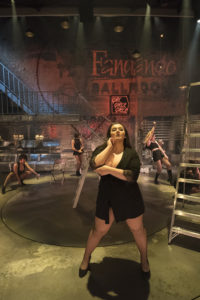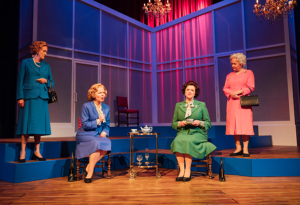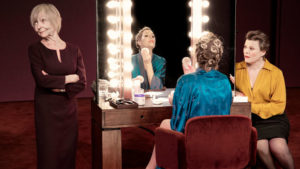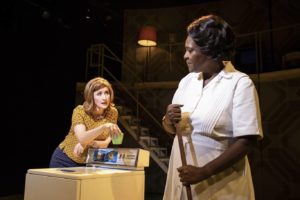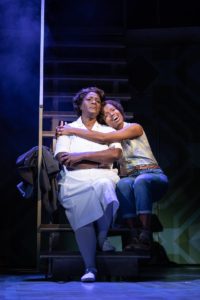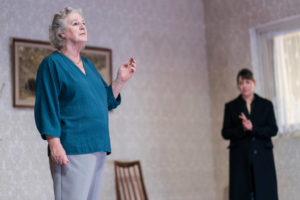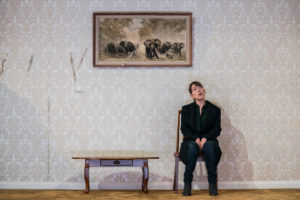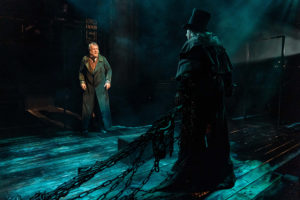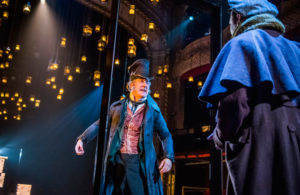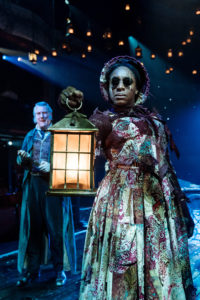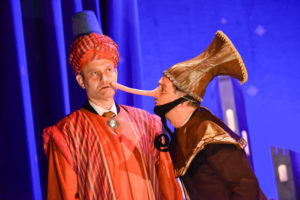Downton Abbey star in clever one woman play by Christopher Hampton
[usr=4]
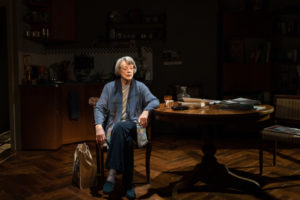
The set comprises a small living room with an old lady sitting on a chair alone on a thrust stage talking to the audience. She never stands up. For 100 minutes we listen, I mean really listen.
The lady is Maggie Smith playing a real person called Brunhilde Pomsel who among other things was secretary to the monstrous Josef Goebbels, a top Nazi during World War Two. Apart from the light around her getting darker and focusing increasingly on this slight figure, Jonathan Kent’s production and Anna Fleischle‘s design are restrained, by which I mean, as gimmick-free as they can be.
The play is based on interviews Frau Pomsel gave in her old age. They may have been intended to show how ordinary Germans behaved during Nazi rule and pose the question, would you have behaved any differently: ‘I had no idea what was going on. Or very little. No more than most people.’ However Christopher Hampton’s play is much more nuanced.
A German Life is partly about the false memory of old age but also the deliberate rewriting of one’s history. And Hampton is brilliant at giving clues as to what the truth might be but leaving you to make your own mind up.
This woman says she was brought up to obey but she got her first job by going off to Berlin on her own initiative. She says she was quite distanced from the womanising Goebbels yet she describes with excitement how she sat next to him at a dinner in his house when his wife was away.
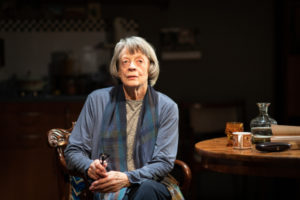
She clearly didn’t subscribe to the Nazi ideology- for example, she had nothing against jews, she had jewish friends and employers. In that sense she is only guilty of acquiescence, of not doing anything, like many ‘ordinary’ people. But she was not in an ordinary situation- and we are bound to question her claims that she was unaware of what was going on, when she was one of the people in Goebbels’ office.
So how does Maggie Smith do at conveying this? The answer is, in the main, she plays Pomsel as a doddery old lady. Personally, I found the hesitations and repetitions grated a little but perhaps they were meant to. It’s as if Pomsel is acting, deliberately portraying herself in this way to emphasise how harmless and how naive she was. She fiddles with her glasses, puts her hands to her face. Then every so often, emotion, usually in the form of pride, causes her mask to slip: her face lights up with a vivid memory, her voice gains a steely confidence and her glasses stab the air.
I accept that a portrayal of a normal person isn’t going to lead to a barnstorming performance but I have to say I wasn’t as overwhelmed as I expected to be. I think the problem was that this was an intimate play and, although I could hear her familiar nasal voice perfectly well at the back of the stalls, I could not see her piercing eyes and facial expressions.
This may have been a performance for people sitting in the first ten rows but it takes a great actor and a great play to hold an audience for an hour and 40 minutes.
A German Life continues at the Bridge Theatre until 11 May 2019


